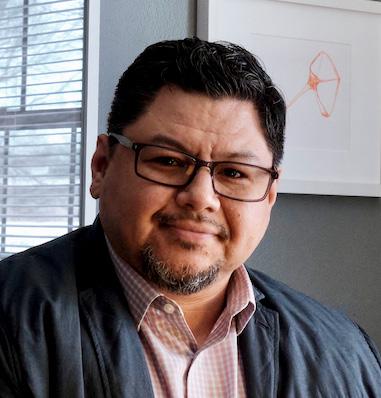
3 minute read
Interview with a Curator
Frank Juarez, Curator
What does a curator do? Can you tell us about the job?
Advertisement
A curator is an arts professional whose work is focused on historical and/or current trends in contemporary art resulting in thematic exhibitions viewed in galleries, arts centers, art museums, artist-run exhibition spaces, or even non-traditional spaces. A curator is someone who is hired or invited to organize an exhibition.
What is your favorite thing about being a curator?
My favorite part of being a curator is networking with artists. Networking provides the opportunity to learn more about the artists’ work, listen to their stories, engage in their creative process, and to ask questions you would not otherwise find the answers to online.
Why did you become a curator?
I became a curator through curiosity. In some ways, a curator is like an art collector. What I mean is that when a curator has an idea of what he/she/they wants to explore they began to do research, visit places that exhibit art, or even do studio visits in-person or virtually. A curator begins the journey of collecting, selecting, and putting pieces together to address an initial concept and to bring that vision to life for others to see, experience, and perhaps question. My curatorial practice has led to multiple projects such as the Midwest Artist Studios Project, 365 Artists 365 Days Project, the Frank Juarez Gallery, an artist-in-residency program at Sheboygan North High School, Indiana Green Invitational, and Artdose Magazine.
What do you have to do to prepare for an exhibition?
A successful exhibition takes time to plan. First and foremost, it begins with an idea. Ideas can range from art you like, to art that addresses social, political, and cultural issues, underrepresented artists to established artists, or selecting a theme you want to explore. Once you have your idea in mind or better yet on paper, then you begin to do your research. This can be done by talking to other artists, checking out social media platforms, visiting artist studios, going to exhibitions, and so on. Once you have your artists in mind, then the fun begins. Follow up with the artists and set up times to get to know them a bit better as well as to learn about their creative process and studio practice. In-person visits are always the best, but virtual works as well. Make sure you create a list of questions that you want to learn about. Think about your curatorial idea and figure out how you can get to the core of it in the least number of questions. Keep in mind that every artist you communicate with many not necessarily be a good fit for your exhibition. Once you have your list, then you will need to figure out how many pieces from each artist you would like for the exhibition based on the amount of space that you will have access to. Figure out which works will communicate your curatorial vision. After you have accomplished all of your objectives, you will need to write a curatorial statement that can be shared in print and online. This statement gets to the heart of the exhibition. You may even have the opportunity to say a few words in person at the exhibition. How cool would that be?
What part of your job has surprised you?
Honestly, I cannot think of anything that has surprised me - but, what I can say is that all curators are not created equal. There are all types of curators in this world, some of which went to post-secondary institutions to receive their degree, realizing that a curatorial practice is a necessity in whatever project you are currently involved with.
Got any advice for someone who wants to become a curator?
I would say trust your gut instinct. The earlier you realize that not everyone will like your ideas and selection of artists, the better you will be mentally prepared and focused. Always keep your eyes on the prize. Also, even a well-curated exhibition can experience less engagement in terms of an audience. We live in a competitive art world so plan accordingly. Check local listings to see what is happening on a day that you would like to have an opening. If there are too many events, then pick a day that may not be as popular as a Friday or Saturday. Thursday or Sundays are great alternatives.









